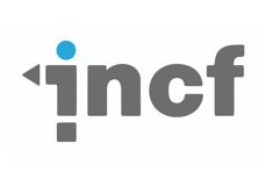Researching neuroinformatics?
Discover rapid, open publication in the INCF Gateway on F1000Research
Submit nowDiscover the INCF gateway on F1000Research
The perfect home for your neuroinformatics research.
F1000Research facilitates the rapid and transparent sharing of research by providing fast, open publication alongside access to any underlying data, software code and resources. All research articles are reviewed post publication, with expert peer review reports freely available.
Neuroinformatics as a field devoted to the development of neuroscience data along with models and tools to share, integrate and analyse this data aligns well with F1000Research. We have published extensively in the field of bioinformatics whether it be traditional research articles or through pioneering new publishing outputs such as a software tools and data notes.
Since 2015 we have partnered with the International Neuroinformatics Coordinating Facility (INCF) to provide them with a community gateway. We are combining our passion for bioinformatics and our partnership with the INCF in a call for neuroinformatics papers that will be published on the INCF gateway! We welcome all forms of articles in neuroinformatics, from research articles to methods and software tools.
Instructions for authors
Ready to submit your article to the INCF Gateway? Read our author guidelines now, to ensure you’ve prepared your article correctly for submission.
Read nowNeuroinformatics Assembly 12th-16th September 2022
We’re pleased to announce that F1000Research will be attending the 2022 Neuroinformatics Assembly. Throughout the event, our expert publishing team will be available at the F1000Research virtual booth to answer all your open research questions. Make sure you drop by to learn about the benefits of publishing with F1000Research!
Discover the INCF GatewayIntroducing the INCF gateway
The INCF network serves as a forum to collaboratively coordinate global neuroinformatics activities that guide and oversee the development of standards, best practices, ontologies, and other unifying activities. The gateway provides a venue for outputs from INCF Conference materials and for neuroinformatic publications.
Articles published on F1000Research are subject to our Article Processing Charges and INCF members get a 20% discount!*
*Discount will be applied once we have verified membership with the INCF. Authors should indicate they are members and request the discount on submission.
Why publish on F1000Research?
Publish without delays
Our rapid publication model offers an innovative alternative to traditional journals publishing, where long delays between submission and publication are expected. On F1000Research, your article could be published online, peer-review ready and in a fully citable format, in as few as 14 days, so your research can make an impact sooner.
Support transparency and reproducibility
The F1000Research publication model puts transparency and reproducibility at the heart of what we do. Our platform facilitates transparent sharing of research by publishing all articles openly, alongside access to any underlying data, software, code, and other resources – even the peer review reports. This focus on transparent, reproducible research supports the credibility and rigor of your published work.
Maximize the impact of your work with Open Access
With fully open publication as standard on F1000Research, anyone can read, cite, and use your work – including policymakers, practitioners, and fellow researchers. Alongside open publication of the article itself, F1000Research also advocates a rigorous Open Data policy so that others can replicate your study, reproduce the original findings, or reuse the data to support their own work.
Publish all your findings
F1000Research publishes articles and other research outputs without editorial bias. All research is suitable regardless of the perceived level of interest of novelty, meaning we welcome confirmatory and negative results, as well as null studies. The peer review process focuses on the academic merit of the paper, rather than the likely impact of the work.
Research outputs come in many forms. So do our article types.
Research articles may still be the top research output but that doesn’t mean that other article types don’t work, and in some cases might even be better to present your research!
The INCF Gateway on F1000Research welcomes a range of formats and outputs relating to neuroinformatics research, including:
- Software Tool Articles detailing the software you’ve developed to support or conduct research in neuroscience
- Data Notes describing how and why your scientific dataset was created
- Method articles describing new and well-tested experimental, observational, theoretical, or computational methods. This includes novel study methods, substantial modifications to existing methods, and innovative applications of existing methods to new models and scientific questions.
This diverse range of formats helps you tell the full story of your research and gives you the credit you deserve for your work.
About F1000Research
F1000Research is a fully open access publishing platform, offering rapid publication of articles and other research outputs without editorial bias.
All articles benefit from transparent post-publication peer review, and editorial guidance on making source data openly available.
F1000Research advocates for transparency and reproducibility in research, and our unique publishing model supports this at every stage. Articles can be published in as few as 14 days, with post-publication peer review creating an open dialogue between authors and their research community. This generates feedback which can be used to improve the article and develop the author's skills.
Want to see more videos from F1000Research? Explore our YouTube channel and subscribe to be notified about new content on there.


